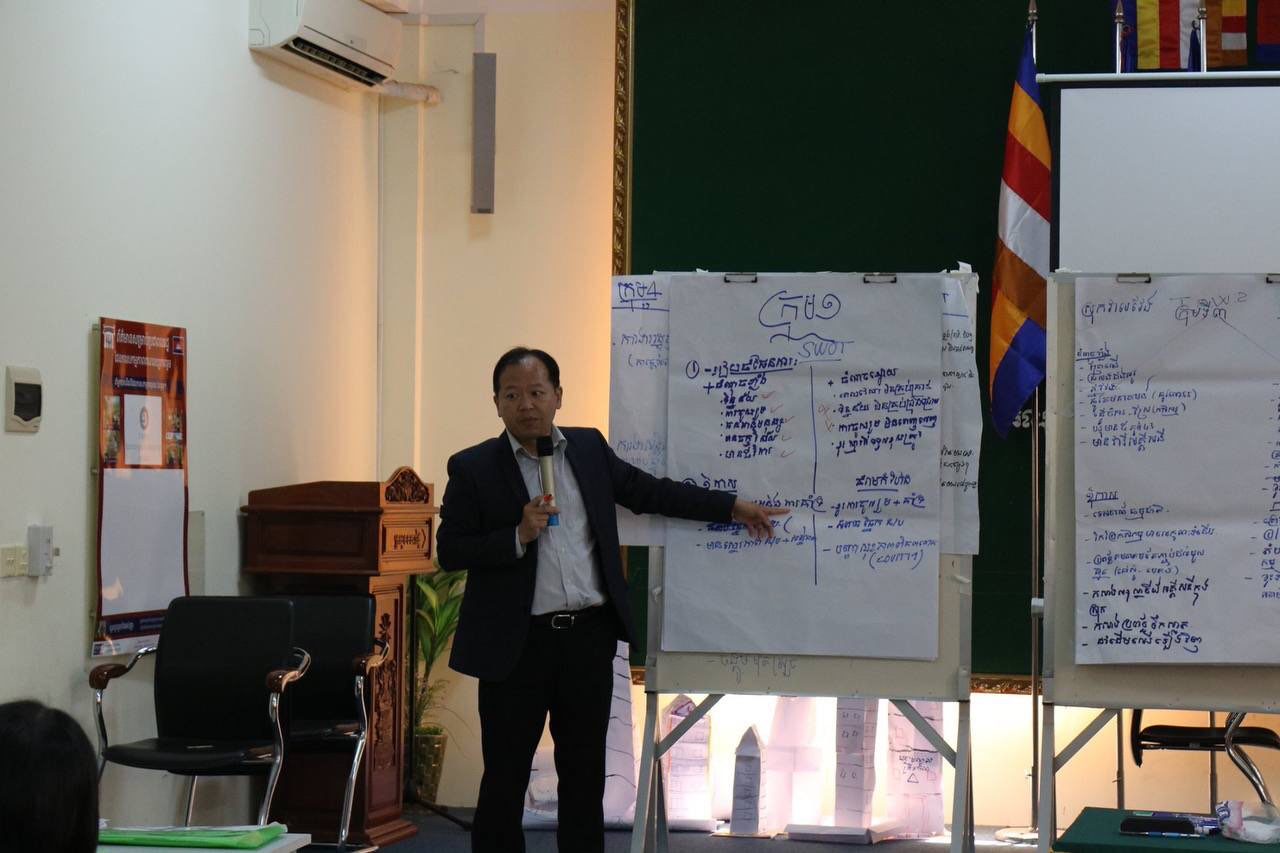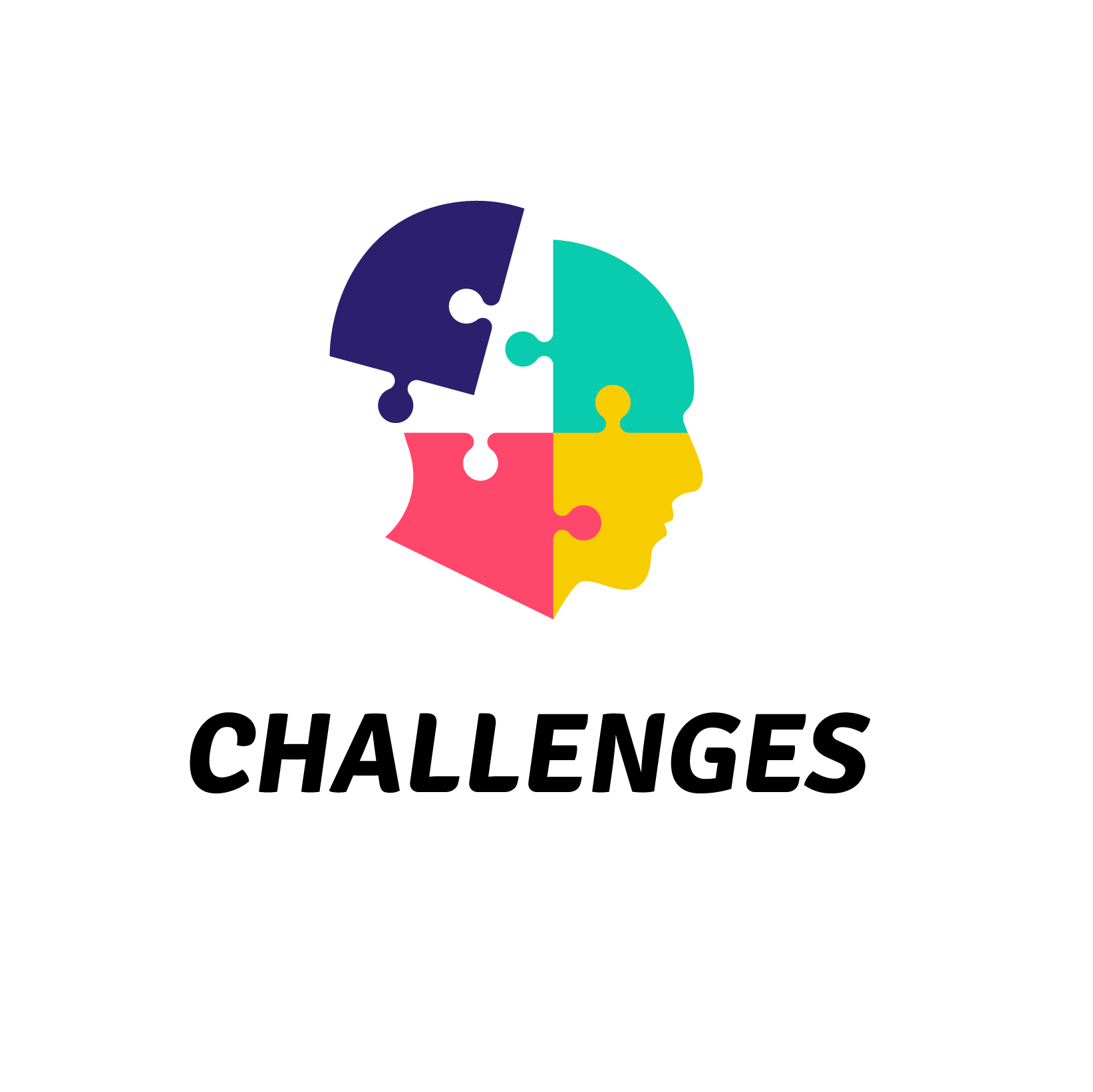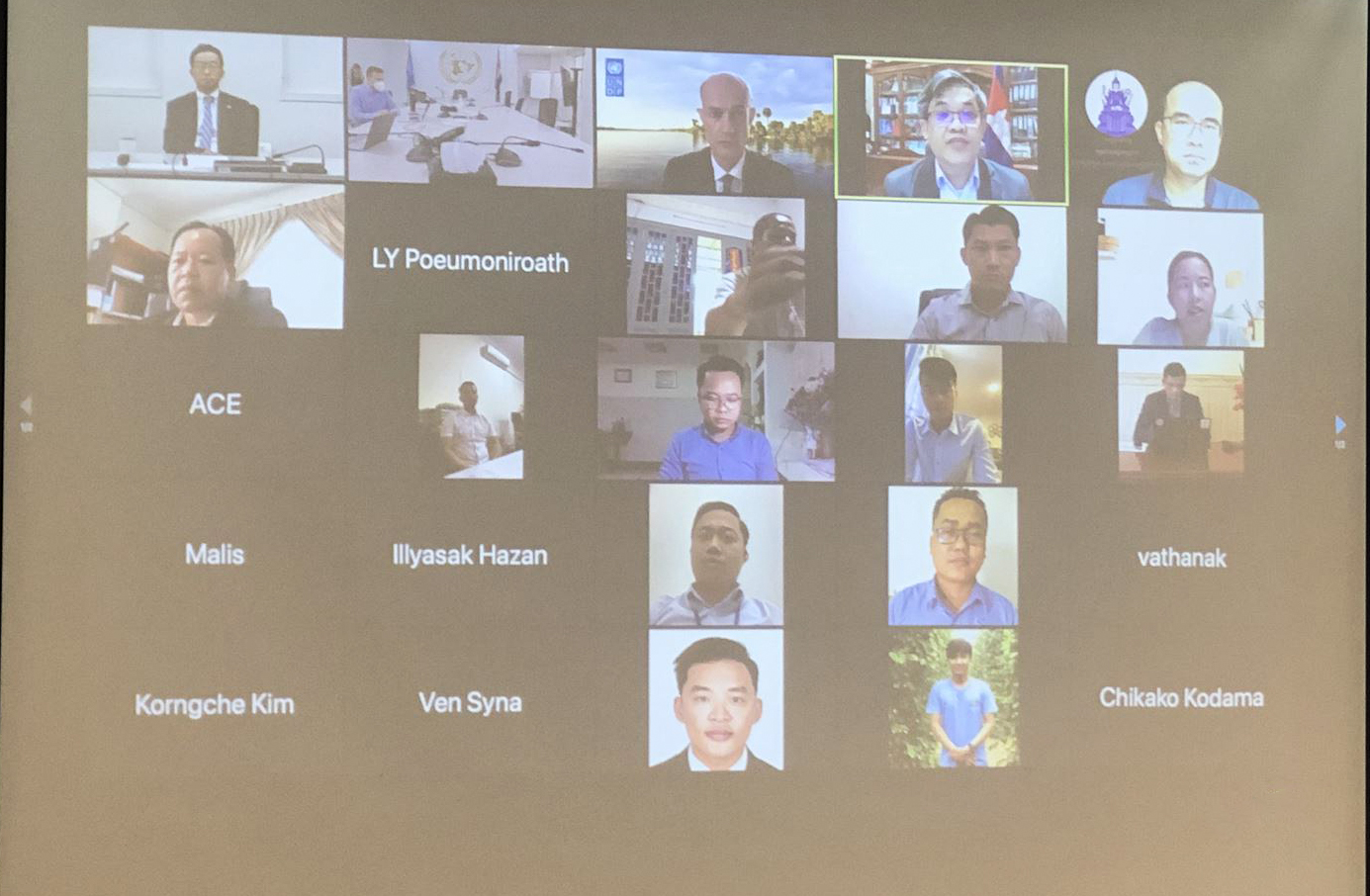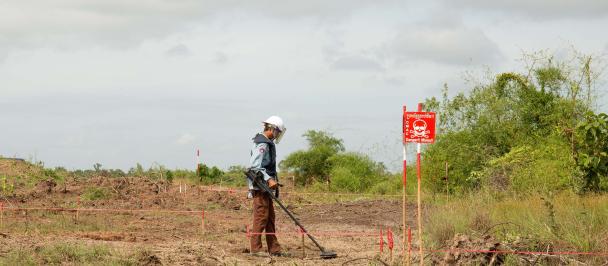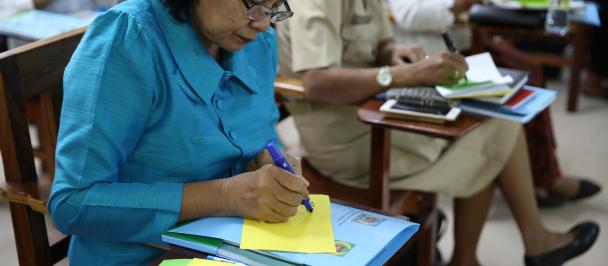UNDP with support from the Government of Japan launched the project “Building Capacities for Civic Engagement, Peacebuilding and Inclusive Dialogue: Towards Inclusive and Participatory Governance”. The objective of the civic engagement project is to promote democratic governance initiatives and a peaceful, inclusive, and equitable society through expanding opportunities for inclusive civic engagement using dialogue. In line with the overall objective, UNDP is exploring with the National School of Local Administration how ‘innovation learning’ promotes sustainable, accountable, and inclusive democratic development through participation of citizens and civil society.
| NASLA was established in 2016 to ‘building capacity for civil servants, council of sub-national administrations, students, and other stakeholders as well as conducting research on governance, local development, enhancement of local autonomy and management of sub-national administration.’ NASLA started providing training programmes in 2018, and to date has delivered more than 100 training courses to over 7,200 civil servants. |
In sharing a common interest of delivering “visible results at the local level” through capacity development, UNDP Cambodia initiated a series of trainings starting with a training of trainers (TOT) for NASLA officials to inject innovation and creativity into civil service training curriculums. The “Innovation for local administration” provides participants with new tools and perspectives to prepare them for more effective stakeholders’ engagement, communication, and co-design solutions with ‘users’, i.e., citizens and civil society organizations.
What are challenges in capacity development?
As Principal of the National School of Local Administration, Mr. So Munyraksa promotes implementation of the decentralization and deconcentration reforms through capacity development to sub-national administrations. In this context, he pointed out the major challenges; “In class people participate and are eager to learn new things, but when they go back, people are unlikely to implement what they have learned.” These difficulties coupled with the obstacles in measuring and delivering change in attitude and mindset of participants, resulted in innovative practices rarely happening within local administrations.
He admits that capacity development supporting the first ten years of the national programme on sub-national democratic development in Cambodia was rather ad-hoc focusing on supply side such as new government guidelines and regulations rather than a systematic approach. Based on this premise, The National School of Local Administration (NASLA) was founded.
So, what did innovation mean to the impact that NASLA wants to make through capacity development?
“Before we attended the ToT, we thought of innovation as something modern, new, what no one has done before. Yet during this ToT we learnt that innovation could be something that already exists somewhere else. When it is applied to a new situation, it could improve and solve problems. And that can be called as innovation.”
“Innovation is a change in a way of thinking.” “If local officials don’t change mindset and attitude, nor perform the reforms, innovation would not happen at the local administration.” “Some may think that innovation is difficult” but he thinks that innovation can be made by local officials. “ What is important is commitment and show examples of innovative contributions then people have more incentive to follow and apply. In the context of Cambodia, we have to influence and promote a new way of thinking. This could be achieved by analysing a model area or district that stands out in terms of embedding and fostering innovation.”
Looking beyond, how will NASLA implement innovative learning for local administration?
“Promoting innovation will be useful to change in mindset of local leaders and officials. After the TOT, the concept of ‘innovation’ has changed. We used to see things from only one way; for service delivery and policy making, we didn’t focus on finding additional resources and data to change the way we work and how we deliver change. But now we can apply then logically.
“Local officials are still afraid to make changes” even after training and in supporting the application of a new way of thinking, “we don’t want just to provide training in class, we wish to provide novel ways of coaching, and intervene in one area at one administration. At the moment we don’t have that opportunity, but we hope we will have opportunity to coach sometime soon.”
“We usually think first with our heart, then we come with a solution. In Cambodia the way we deal with issues is not often logically linked from one issue to another. We come to solution itself, but not in a logical manner. In the ToT programme we had topics on problem solving, data literacy, system thinking and some of the content we already use in our daily work. This is where we discovered that our daily work activities come from the theories and modules we discussed. Its standard for officials to learn something new and often think of something that we need to apply. This promotes a habitual mode of working without injecting new methods or skills.”
Mr. Munyraksa stressed “the capacity development has to be systematic. We are designing, and piloting obligatory training based on a competency standard for officials. We will then develop the content of each individual training and ensure that officials at the local level are equipped with appropriate capacity in effectively and efficiently delivering services and developing localities. We don’t have innovation module right now and the innovation learning will provide a foundation for us to design a mandatory innovation module. But I think the innovation modules will be central to NASLA future capacity development programmes
How did NASLA think of a modality of ‘online’ to sustain capacity development during the pandemic and in future?
“Our next training sessions (delivered independently by NASLA to colleagues in the Association and Political Affairs Department and Training Department of the Ministry of Interior) will be our first time delivering online training. There are innovative ways of thinking but no application. We wish to adopt a mixed-method training approach of online and in class training. We have to keep up with technical development and encourage students to learn new technical skills effectively and efficiently. At the same time, we have to be mindful that online training will require appropriate infrastructure including internet speed as well as programmes adapted to online. NASLA supports capacity development to local administrations and the enabling conditions for online capacity development is challenging in rural areas.”

 Locations
Locations